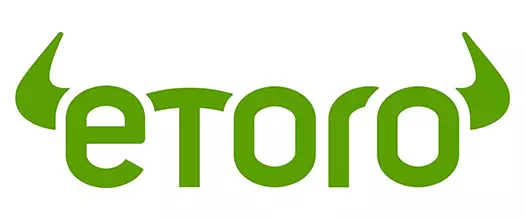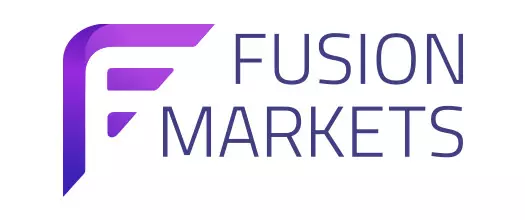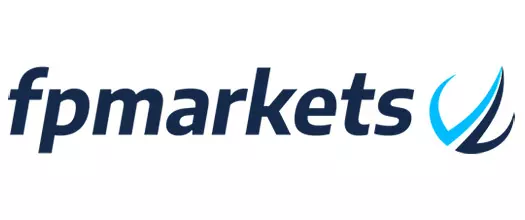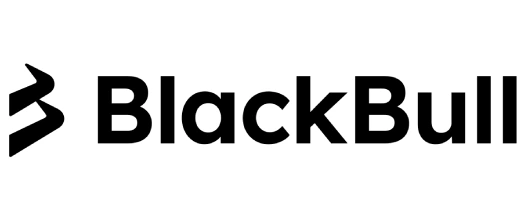- Jump to:
- Main features of the best Turkey Forex brokers
- Forex Legislation
- Financial Regulators
- Payment Methods
- Trading Software
- Mobile Trading
- FAQ
Our team of expert traders tested many regulated and trustworthy forex brokers that accept traders from Turkey and compiled a top list with the best among them. Each broker operating in Turkey received a quality score based on several factors, including Trustpilot rating, regulation, fees and commissions, available trading platforms, customer service and more.
 Plus500 USThis content applies only to Plus500 US and clients from the United States. Trading futures involves the risk of loss.
Plus500 USThis content applies only to Plus500 US and clients from the United States. Trading futures involves the risk of loss. eToro61% of retail investor accounts lose money
eToro61% of retail investor accounts lose money Fusion Markets74-89% of retail's CFD accounts lose money
Fusion Markets74-89% of retail's CFD accounts lose money FP Markets73.85% of retail investor accounts lose money
FP Markets73.85% of retail investor accounts lose money BlackBull MarketsTrading leveraged products is risky
BlackBull MarketsTrading leveraged products is risky Pepperstone75.5% of retail investor accounts lose money
Pepperstone75.5% of retail investor accounts lose money
Below you can find a comprehensive comparison table of forex brokers for traders in Turkey. We rank them based on several factors, including regulation, spreads and commissions, Trustpilot rating, trading instruments, trading platforms, and deposit and withdrawal methods.
Our team has thoroughly evaluated all brokers listed below using TradingPedia’s exclusive methodology.
Main features of the best Turkey forex brokers
- Brand
- Trading platforms
- Minimum deposit
- Regulations
- Trading instruments
- Spreads
- Leverage for Forex CFDs
- Leverage for Crypto CFDs
- Leverage for Indices CFDs
- Deposit methods
- Withdrawal Methods
- Commission per Lot
- Contact details
Strategically located on the Anatolian peninsula, Turkey is a nation with a rich cultural heritage and colourful historical timeline that dates as far back as the 13th century. Throughout its long history, the country has served both as a bridge and a barrier between Europe and Asia. It is the 36th largest country in the world, occupying an area of 783,562 square kilometres, with a population of 83.9 million people.
Turkey has registered impressive economic growth since the early 2000s, which led to higher employment and income rates. Its gross domestic product grew by an average of 7% for the period between 2010 and 2017 despite the geopolitical frictions that shook the country at the time.
In the summer of 2018, the nation was hit by a severe financial crisis characterised by high inflation rates and the depreciation of the local currency, the Turkish lira (TRY), whose value dropped by nearly 30%. Nevertheless, the local economy rebounded in the following year, driven by the industrial and agricultural sectors.
Turkey’s variety of natural resources, along with its emerging market economy, has helped transform it into a booming centre for financial activities and international investments. It has strong trading partners in the face of major economic powers such as Germany, China, Russia, and the United States. Its largest city, Istanbul, is home to the Borsa Istanbul Stock Exchange (BIST), which comprises 371 of the biggest companies in the country.
With a diversified and relatively young population, an increasing number of locals have been looking for new ways to generate additional income. Many have chosen to do so by trading on the forex market, which is strictly regulated at a local level. Turkish authorities have kept introducing increasingly tight regulatory measures over the years, making it difficult for international brokers to penetrate the local foreign exchange scene.
Turkey forex legislation
Forex trading is legal in Turkey, but brokers need to go through a cumbersome licensing process to receive authorisation from the Turkish authorities. Operating on this market without a licence from the local regulator, the Capital Markets Board of Turkey (CMB), is strictly prohibited. The country is not a member of the EU, which renders servicing Turkish traders with a licence issued in another European jurisdiction impossible.
The financial sector is subject to the Capital Markets Law, which has seen numerous amendments over the years. The country has had its fair share of forex scams in the past, which has caused local authorities to adopt an extremely rigid regulatory stance towards brokerage firms.
In 2011, new laws were enforced to effectively prevent unlicensed brokers from offering their services to Turkish citizens. The tighter restrictions reduced the uncertainty local investors had been faced with, allowing them to actively participate in the markets without the fear of being defrauded by scammers. An Investor Protection Fund was also created.
The latest amendments to the country’s forex legislation came unexpectedly at the beginning of 2017 with the introduction of harsher limitations. The new restrictions were so severe that Turkish brokers arranged an emergency meeting where they discussed how to oppose the limitations. A special website was also created so that market participants could sign a petition against the harsher regulatory measures.
While some consider them unfair, the restrictions mostly aim to protect small-scale and non-professional traders from the risks associated with speculative leveraged instruments like the notorious contracts for difference (CFDs).
Under the new requirements, minimum deposits jumped to ₺50,000. This approximates to around US$8,360 under today’s exchange rates, which is a significant amount, especially for beginner investors who often have limited initial capital at their disposal. The logic behind this high threshold is that customers who cannot commit to a minimum investment of at least ₺50,000 should not be trading on the forex markets to begin with.
On the other hand, the leverage on complex derivatives such as CFDs suffered significant reductions. Customers who trade on margin can now use leverage of no more than 1:10. This must be the lowest leverage cap in the entire world, lower even than Japan’s 1:25 maximum. By way of comparison, the previous caps in Turkey were 1:50 for trading accounts under ₺20,000 and 1:100 for customers whose balance exceeded this amount.
While this is not necessarily a bad thing from the perspective of inexperienced investors, many regulated Turkish brokers expressed fears that the harsh measures would restore the market to the way it was before 2011. The companies argued the restrictions would force local customers to turn to unauthorised offshore websites for their trading activities, causing an outflow of Turkish capital to foreign countries.
This way, Turkish traders would essentially circumvent the draconian regulations that were meant to work in their best interests. The brokers insisted the best way to protect small-scale investors would be to educate them about the risks inherent to certain trading activities rather than severely restrict their leverage.
Speaking of risky investments, the sale of binary options to Turkish customers is also prohibited. The CMB has long been waging war against this highly volatile trading instrument. The authority has even threatened to sue binary options providers and block their websites in the past, arguing this is a gambling product rather than a financial instrument. This stance echoes the sentiments in other countries like the United Kingdom and Canada where binary options are also prohibited by law.
Turkey financial regulators
Turkey’s financial industry is regulated by the Capital Markets Board (CMB), which was tasked with this responsibility by the Ministry of Finance. The supervisory agency was established in 1982 after the enforcement of the Capital Markets Law (CML) that came into effect in 1981.
Several other decrees passed in the years that followed, expanding the regulator’s scope of responsibilities. One chief example is Law No. 4487, enacted in December 1999. Apart from expanding CMB’s regulatory duties, this legislation introduced important changes that aimed at increasing consumer protection.
The main objectives of the Turkish regulator are ensuring the stability of the local financial market, protecting customers, and overseeing the operations of all stock market participants. Structure-wise, the CMB consists of a chairman who heads a board of seven commissioners, appointed by the Ministry of Finance and the Ministry of Industry and Commerce, among several other governmental entities.
The CMB is responsible for the issuing of licences to authorised forex brokers that meet the regulatory requirements of the country. The agency closely scrutinises all licensees to make sure they remain compliant with its guidelines. Companies found to be violating the rules face heavy sanctions.
Turkey forex payment methods
New traders from Turkey are recommended to first lay the foundations by trading with virtual credits via demo accounts. Those who are already familiar with the forex markets can register live accounts and fund them with real cash.
As we previously explained, traders need a starting capital of ₺50,000 or more, at least if they join CMB-regulated brokerages as recommended. There are many different ways to transfer funds to your live account, but a bank transfer is the most broadly available option. Just keep in mind it might sometimes take a couple of business days for the deposited amount to arrive in your real-money balance.
The most widely used banking method in the country is the credit card, accounting for as much as 74% of all payments conducted in 2018. The use of debit cards pales in comparison, with a meagre 6% of all transactions during the same year.
Nevertheless, both options are prominently featured in the payment systems of Turkey-friendly forex brokerages. Traders may choose to deposit with Visa, Maestro or Mastercard. An alternative for those who are reluctant to pay directly with their cards is to use an e-wallet.
Some brokers accept BKM Express, a popular e-wallet in Turkey that enables users to link it to their debit or credit cards. It can be used for both online and mobile purchases. The deposit process with BKM Express is beyond simple.
You select the method from the broker’s payment system, log into your BKM Express account, specify the desired deposit amount, and enter the verification code your bank has sent to you via text message. The code is used to confirm the transaction.
Skrill, Neteller, PayPal, Perfect Money, and WebMoney are the other commonly available options for Turkish traders looking to deposit with digital wallets. Turkish residents who do not own credit or debit cards can also conduct payments via the FasaPay gateway, which facilitates fast, safe and affordable online money transfers. The interfaces of many of these e-wallets are available in Turkish, so you will experience no difficulties if you are not fluent in English.
Popular trading software in Turkey
The software that brokerages use is of essential importance for the quality of one’s trading experience. When choosing a broker, you need to pay attention to factors like execution speeds, the versatility of ticker symbols, and the availability of tools for technical analysis.
Most brokers on the Turkish forex market prefer to use third-party software, with MetaQuotes’ MetaTrader 4 and MetaTrader 5 being the two most broadly implemented platforms. Whichever you choose depends on your trading portfolio.
If you plan to trade currency pairs only, you are better off with the MetaTrader 4 platform because it was created specifically with the needs of forex traders in mind. MT4 is loaded with plenty of useful features that work to its advantage, including 1,024 trading symbols, hedging, over 30 graphical objects, dozens of technical indicators, and several types of pending orders.
The newer version, MetaTrader 5, has a similar interface but is geared towards the needs of traders who want to expand their portfolios. Apart from forex, the software supports several other markets, including futures, bonds, options and stocks. Both versions have been optimised for use on the go and have free downloadable apps for iOS and Android. Turkish is supported, so language will not be a barrier for traders from the country.
Social trading is one of the hottest trends in the forex industry in recent years. Also known as mirror or copy trading, this style gained prominence in 2016 when ZuluTrade introduced the forex community to its software. The ZuluTrade platform can be used as a vehicle for passive investment.
It enables people with limited experience and trading capacity to follow seasoned investors and copy their positions into their own portfolios. The copied traders, on the other hand, generate additional earnings the more people follow them.
Turkish investors looking to try this trading style should consider several factors before they jump on the copy-trading bandwagon, including the copied traders’ risk score, their profit graphs, and their profit over time. MT4 and MT5 also have additional plug-ins for copy trading.
Mobile trading in Turkey
Since modern life is all about flexibility and mobility, an increasing number of people are beginning to rely on their smartphones for day-to-day activities like shopping, settling bills, browsing and emailing. It appears the situation in Turkey is not much different.
According to Mustafa Varank, Turkey’s current Minister of Industry and Technology, the country is set to become a major player on the mobile apps scene. Turkey ranks in eighth place globally in terms of mobile app usage and downloads, with the number of mobile internet users jumping from 40 million in 2016 to 61 million during the first half of 2019.
These tendencies can also be observed in the field of foreign exchange trading, as the number of mobile traders is constantly on the rise. In June 2016 alone, mobile trading accounted for 39% of the overall volume registered by Turkish traders.
Many forex brokers on the local market cater to this popular demand with dedicated applications for Android and iOS, enabling Turkish customers to trade on the financial markets anytime, anywhere. Mobile compatibility is indeed extremely beneficial to investors.
It enhances the accuracy of decision-making because traders have instant access to live-streamed prices. This gives them an edge since they can immediately react when the markets move in a favourable direction. The best trading apps out there have an intuitive interface that makes trading on the go easy, regardless of whether you are a novice or a seasoned investor.
There are plenty of helpful educational resources to improve your skills, alongside a variety of additional features for charting and technical analysis. The availability of the Turkish language is an absolute must for mobile brokers that operate on this market.








